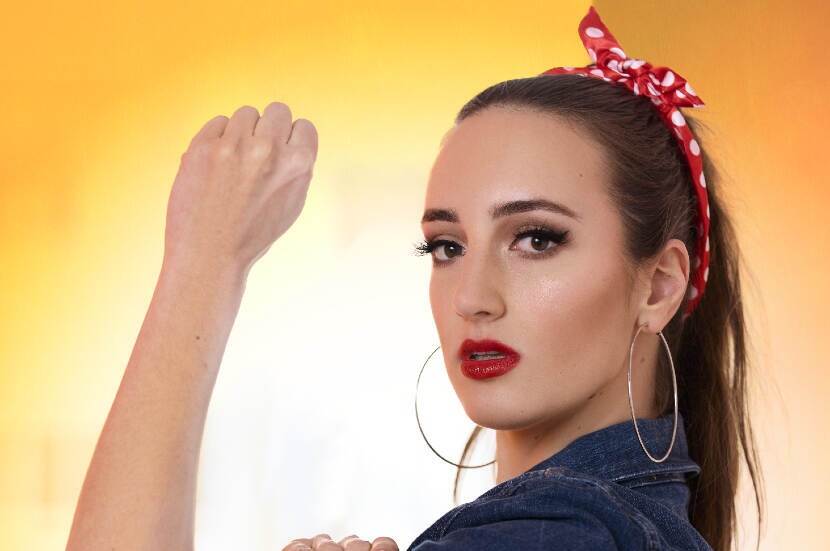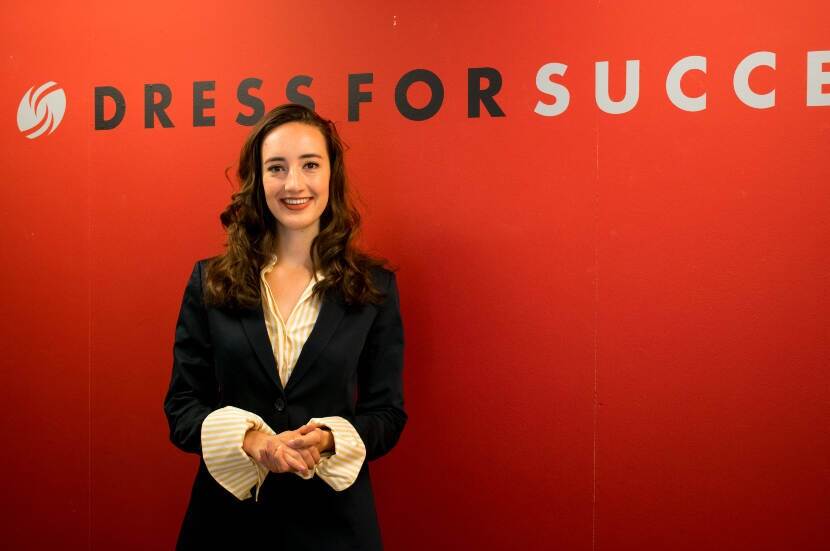‘Society still doesn’t accommodate women with ambitions’
When Laura was living in Brazil at the age of 17, she saw the consequences of marginal sex education. Now Laura Bas (24) from Amsterdam is the new youth ambassador for sexual and reproductive health and rights, gender equality and choice. ‘Young women simply connect more easily with their peers.’

As the brand new youth ambassador, Laura’s task for the year ahead is to give young people a voice in Dutch government policy, both nationally and internationally.
For a year, Laura will work with top diplomat Pascalle Grotenhuis, the Dutch ambassador for women’s rights and gender equality. Together, they will keep women’s rights and gender equality high on the international agenda.
Promoting gender equality remains essential, including in the Netherlands. Laura can speak from experience. She grew up without her biological father and saw the looks that people sometimes gave her and her mother. ‘My mother always had a job because she wanted to be financially independent. People thought it was sad for me that she worked a lot. What can I say… As an ambitious woman you’re still 2-0 behind on the job market.’
Pay discussions
During her Culture, Organisation & Management studies, Laura also stood up for more gender equality in the job market. She did volunteer work for Dress For Success, a foundation that provides women (and men) with free business attire and tips for job interviews.
The master’s student also asked MEPs Vera Tax and Agnes Jongerius to join her in working on the gender pay gap. As part of the project ‘Omdat ik het verdien’ (Because I’ve earned it), the three women held workshops for nearly a hundred young women on how to bridge the wage gap.
‘Society still doesn’t accommodate ambitious women who want a career. Women are now in the majority at colleges and universities. I’d like to see that reflected in the job market.’
How do you become a youth ambassador?
‘Youth ambassador is a job you have to apply for like any other. But of course you have to show that you really want to improve the position of young people worldwide. I’ve always had that drive, partly because of how I was raised, I think. I followed my predecessors Justine van Beek and Lisa de Pagter intensively for quite a while, and they gave me so much inspiration.’
You spent a year in Brazil with a host family. How did that shape you?
‘In Brazil I saw the consequences of minimal sex education first hand. My host sister (22) accidentally got pregnant last year. In Brazil you immediately have a huge problem, because any form of abortion is banned there. So if you get pregnant at a young age, it’s very difficult to finish your studies. Can you imagine what an enormous impact that has on a person’s life? For me that was a real eye opener.’

What are you going to focus on in your role as youth ambassador?
‘I want to push for more comprehensive sexuality education (CSE) worldwide. It’s not just about the biological and medical side of sex, but about all the questions young people might have about sexuality. That includes sexual pleasure, wishes and boundaries.'
‘I also want to work on breaking the taboos surrounding menstruation. In many countries there’s still a great stigma attached. For example, there are girls who don’t go to school when they have their period. And women who aren’t allowed to prepare food when they’re menstruating, because people believe this leads to infections. Incidentally, even in the Netherlands there are still thousands of women and girls who can’t afford period products. So there’s definitely work to be done.’
The theme of International Day of the Girl this year is ‘Digital Generation. Our Generation’. Is gender equality also an issue online?
‘Karen Burbach, head of the Women’s Rights and Gender Equality Taskforce, and I jointly received a new report from Plan International. It reveals that girls are showing less ambition because of all the disinformation online. They don’t think their voices matter. That has to change.'
‘I think social media can indeed be a risk for young women, for example if you’re constantly seeing the male view of the world confirmed. But if you manage to break out of your bubble, social media can also open up opportunities. If you start consciously following young female leaders, you’ll see that the algorithm suggests other inspiring women. In that case you’re using online media to your advantage.'
‘Social media can be very valuable in my role, allowing me to connect with young people around the world in an accessible way. Next year I want to use social media more to answer questions from young people and to create awareness about various themes.’
What do you see as the biggest challenge when it comes to women’s rights worldwide?
‘Some affluent countries are now slowly emerging from the pandemic. But COVID-19 has caused a reversal of rights and freedoms for many women and girls around the world. For instance, there are many more unintended pregnancies, just like with my host sister. As a youth ambassador, I now have the platform I need to draw more attention to this issue and put broader sex education on the agenda.'
‘This month I’ll be moderating a talk at UNICEF with my predecessor Lisa de Pagter. There’ll also be a youth participation workshop during the Night of the UN. I think it’s important to work with young women to figure out what they need. If you ask me, that’s the greatest added value of a youth ambassador: it’s easier for young women to connect with people their own age.’